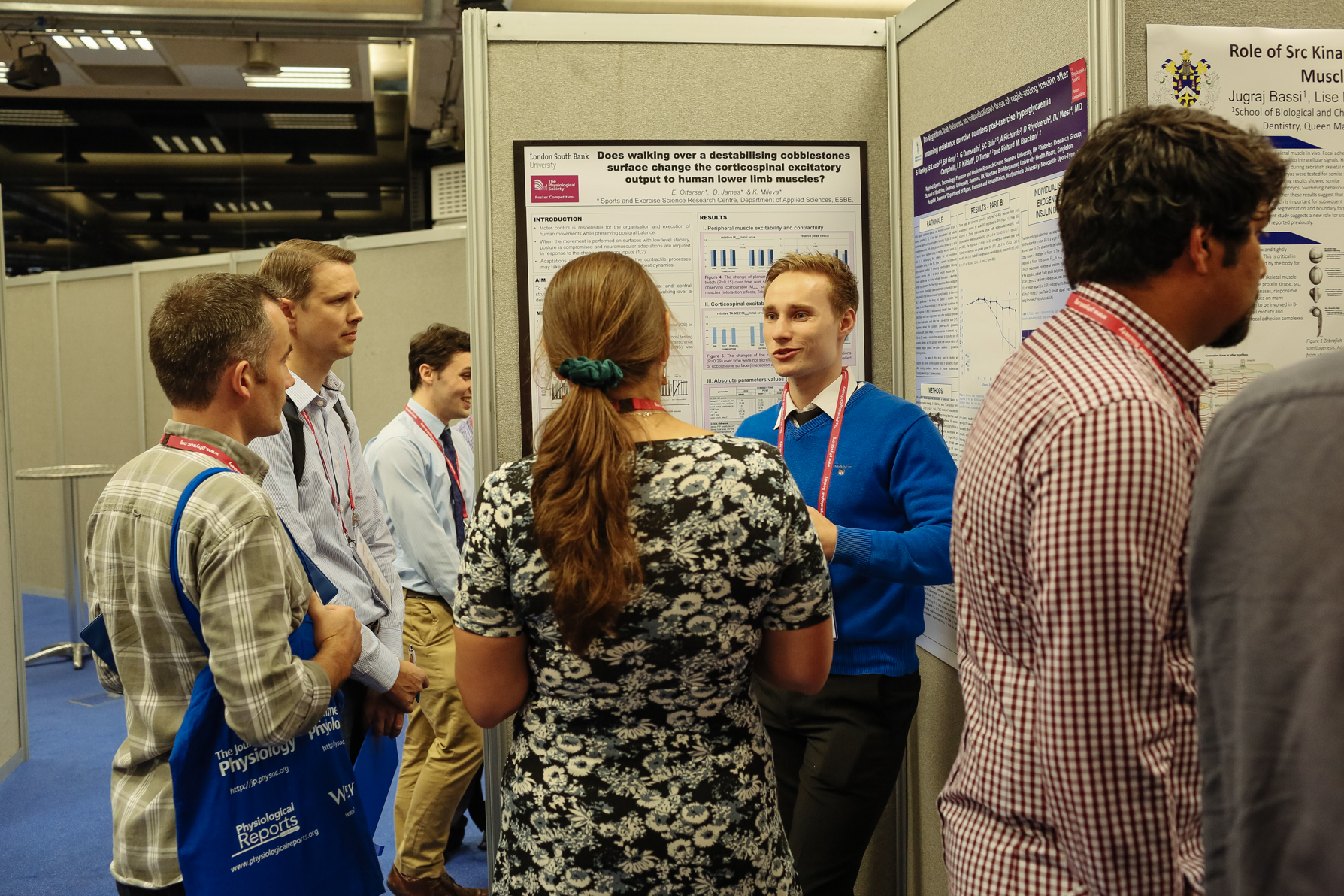
Physiology News Magazine
Europhysiology 2018: Bringing Together Physiologists From Around the World
14–16 September 2018, QEII Centre, London, UK
Events
Europhysiology 2018: Bringing Together Physiologists From Around the World
14–16 September 2018, QEII Centre, London, UK
Events
Sue Deuchars
University of Leeds, UK & Meetings Committee, The Physiological Society
https://doi.org/10.36866/pn.110.19
In the last two decades, physiology events have been challenged by evolving sub-disciplinary and thematic conferences. The Europhysiology series of conferences will bring together the broader global physiology community and promote collaboration among scientists.
‘When I heard about the opportunity to present as an early career speaker at Europhysiology, I knew this was a great way to share some of the data that our lab collected in the past few years,’ Cas Fuch from Maastricht University, Netherlands, told Physiology News.
The partner Societies value our future leaders in physiological research, and so it was critical to find out their opinion of how such a meeting of physiologists would benefit them. We asked our Affiliate Working Group what they feel will be of most use to them.
A major reason for attending such an event is to foster new collaborative ventures with physiologists from across the world.
It was strongly felt that in this climate of interdisciplinary research, such a meeting would increase the capacity to tackle complex problems by promoting new research collaborations.
‘I am really looking forward to this exciting Europhysiology meeting; being able to discuss and network with colleagues from our European neighbours and hear about the ground-breaking research being performed outside of the UK,’ says Charlotte Haigh from the University of Leeds, UK.
Interestingly, our early career scientists feel that they are more likely to know who is carrying out research similar to them in the USA rather than Europe and such a meeting would introduce them to researchers and techniques that they were not aware of previously.
It would mean that they could learn how others approach specific research questions and then they could input into these or perhaps change their approaches in the future. It also opens up new career opportunities.

The Europhysiology series of conferences
In 2016, The Physiological Society, the Scandinavian Physiological Society, the Deutsche Physiologische Gesellschaft and the Federation of European Physiological Societies (FEPS) initiated an agreement to co-host a series of biennial joint conferences.
The series will begin in London, UK, in 2018 and will subsequently be organised in Berlin, Germany, (2020) and Copenhagen, Denmark (2022). FEPS will be a joint organiser of these biennial conferences.
